Mediamax media company and “Armenian Center for Transatlantic Initiatives” NGO have published the Armenian re-edited version of “Opening NATO’s Door” book by American analyst and diplomat Ronald D. Asmus. For the first time, the book was published in Armenian in 2008 in a small edition. The book is presented on the market by Newmag publishing house in Newmag & Friends format. The Ministry of Foreign Affairs of Estonia and the Ministry of National Defense of Lithuania supported in the publication of the book.
The book can be purchased in bookstores in Yerevan, as well as via Newmag’s website, with free delivery: https://newmag.am/book/opening-natos-door.
“Opening NATO’s Door” book presents the process of enlargement of the North Atlantic alliance “from the inside”. Ronald Asmus presents the events both as a theorist and as a direct participant.
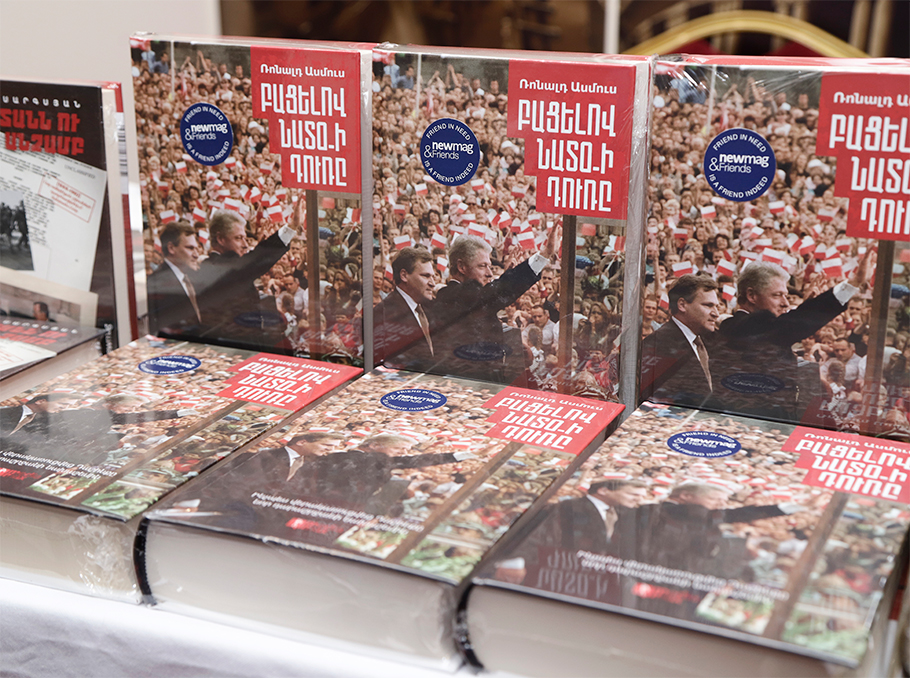
In the early 1990s, he put forward the idea of NATO enlargement, and later, becoming U.S. Deputy Assistant Secretary of State, he got engaged in the implementation of this idea.
“For me it is also an honor that my book is being made accessible to an Armenian audience. The book is a combination of an intellectual, political and diplomatic history - with a little bit of a personal touch. It tries to explain how the idea of NATO enlargement was first born, how it was translated into US and eventually NATO policy and dhow it was implemented over different kinds of opposition at home and abroad. It is the story of how a minority view became mainstream conventional wisdom and eventually triumphed against very long odds,” the author wrote in the introduction to the first Armenian edition of the book.
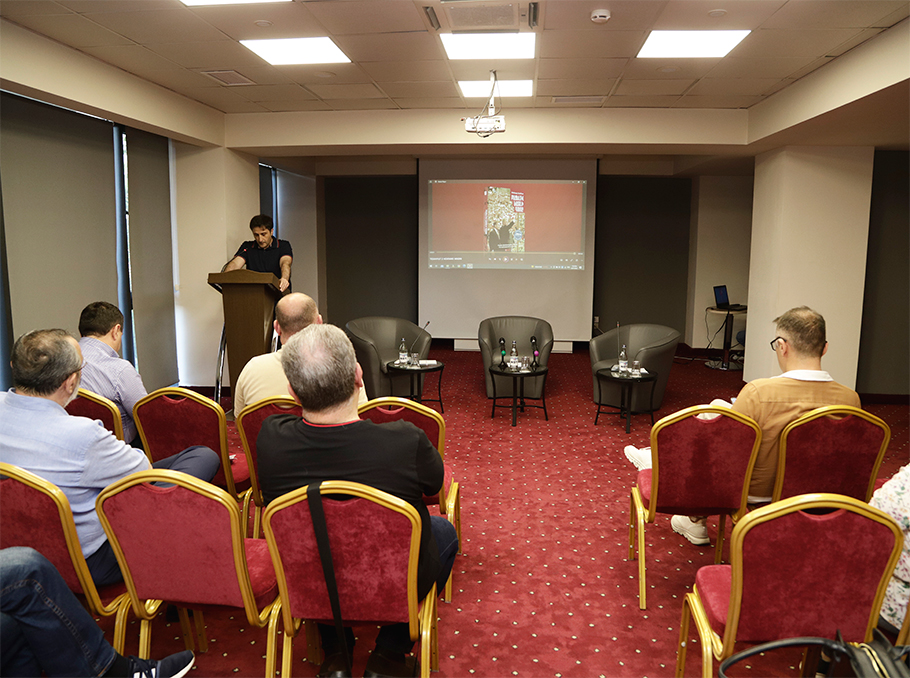
Photo: Mediamax
Ara Tadevosyan, the Director of Mediamax, said at the presentation that the idea to republish the book arose given its relevance in today’s geopolitical situation.
“When the war broke out in Ukraine in 2022, Russia claimed that they had to take that step to prevent NATO’s expansion towards Russia’s borders. At that time, I thought it would be right to republish “Opening NATO’s Door” book, in which Ronald Asmus thoroughly presents not only the process of enlargement, but also how that process was discussed with Moscow. I presented the idea to the Lithuania’s Ambassador to Armenia Inga Stanytė-Toločkienė. Thanks to her efforts this book became a reality, for which I am very grateful. The Ambassador also helped to get the support of the Ministry of Foreign Affairs of Estonia”, he said.
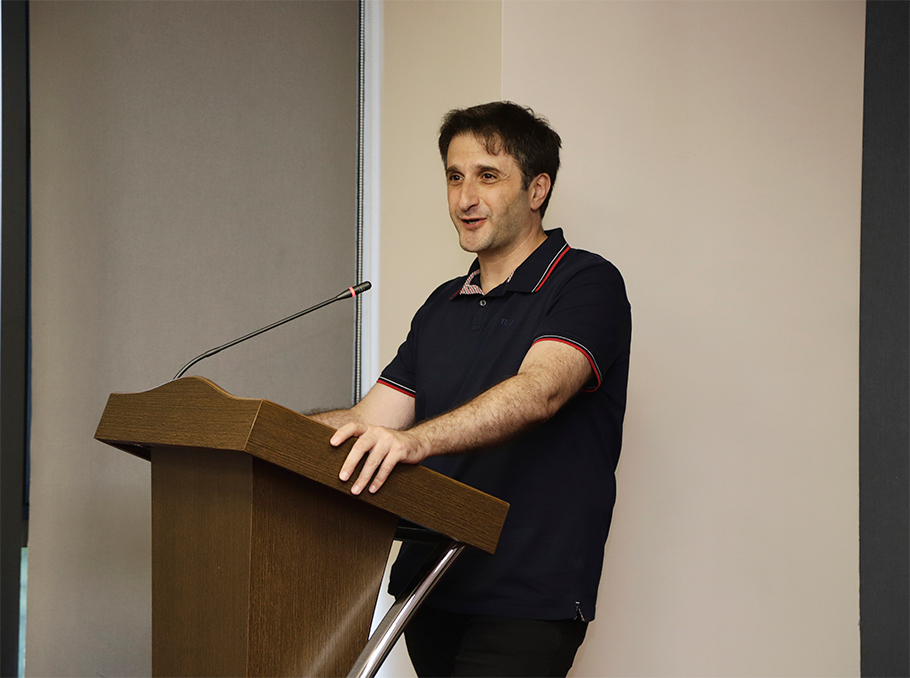 Ara Tadevosyan
Ara TadevosyanPhoto: Mediamax
“The book was translated by Vigen Sargsyan. It was important for us to entrust the translation to a person with not only excellent knowledge of English and Armenian, but also an expert in international relations,” said Ara Tadevosyan.
He remembered how he first met Ronald Asmus in 2004, when the analyst arrived in Yerevan as member of the delegation of the U.S. German Marshall Fund.
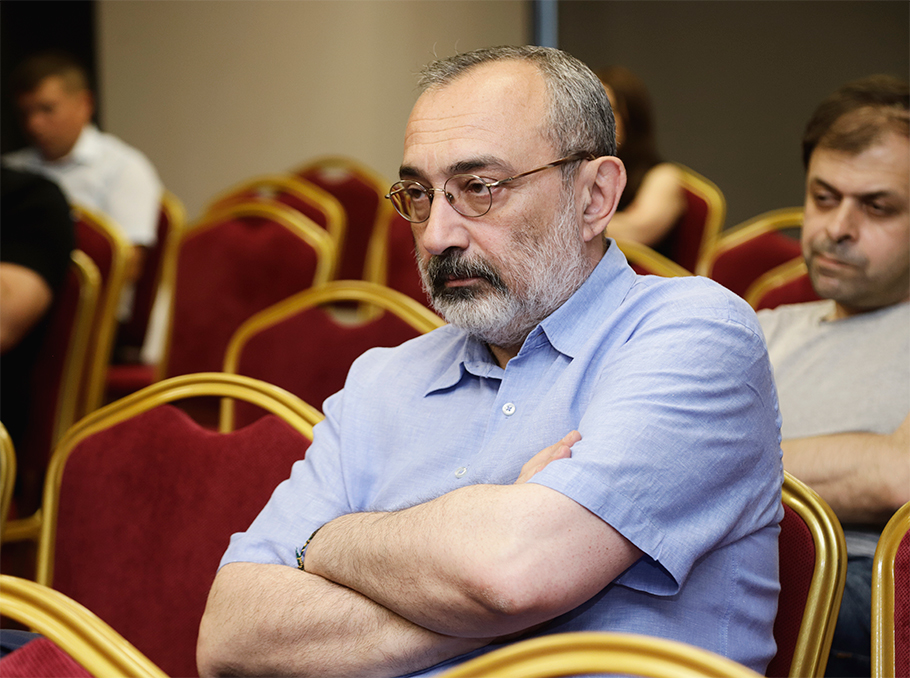 Karen Mirzoyan
Karen MirzoyanPhoto: Mediamax
“We established working ties and then became friends. A year after our first meeting, Ron suggested that I become a member of the Wider Black Sea working group, in which I had the honor to represent Armenia for almost 1.5 years.”
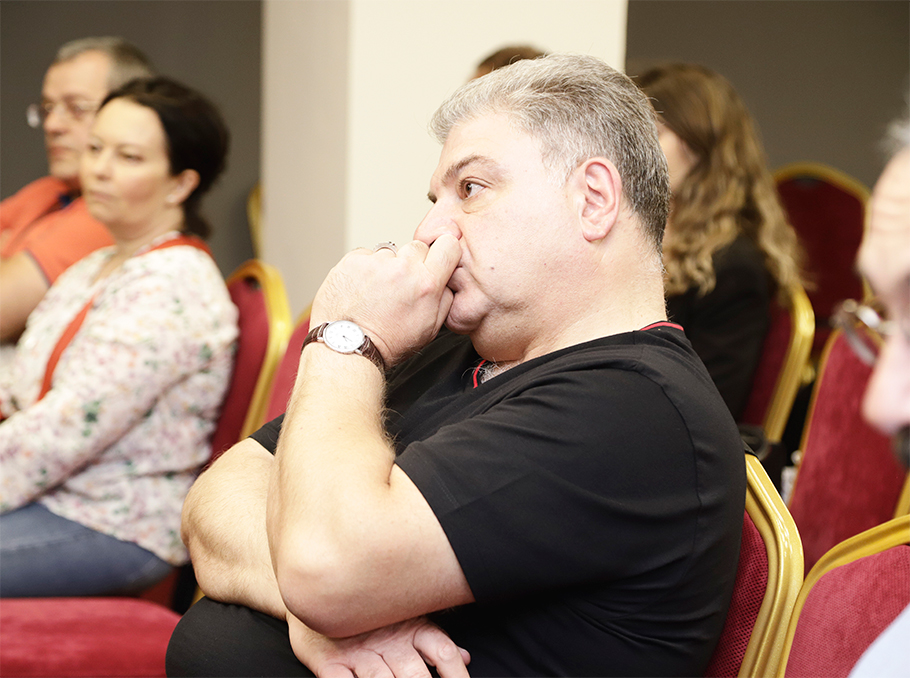 Vahagn Melikyan
Vahagn MelikyanPhoto: Mediamax
Unfortunately, Ron Asmus will not see the second Armenian edition of his book: he died in 2011, at the age of just 53.
The presentation of the book was followed by a discussion with the participation of Newmag authors Suren Sargsyan - the author of “Armenia and Bush in Person” book and Samvel Farmanyan, the author of the book “Alone against Fate”. The discussion was moderated by Ara Tadevosyan.
Ara Tadevosyan - Initially, the idea of NATO enlargement was not welcomed by people with a solid diplomatic background in the West, particularly in the United States. Was there a real alternative for the West, or was it a matter of time when the political decision on NATO enlargement would mature?
Suren Sargsyan - The period of the 90s was very different, the relations between the United States and Russia were in a completely different dimension. There was a small phase in the relations between the two countries during this period, which, given the warmth of the relations, is called “honeymoon”.
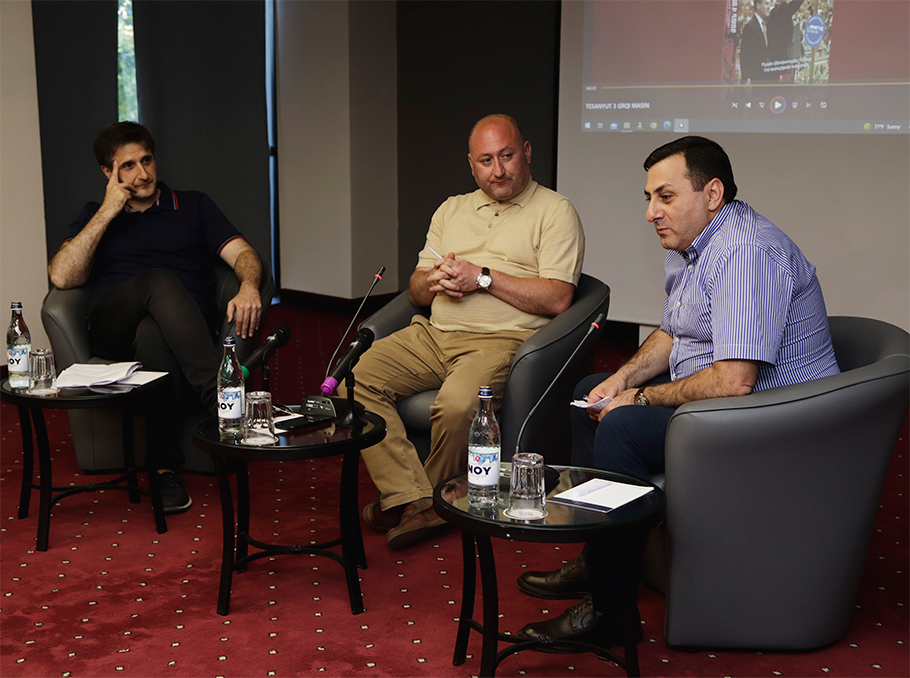 Ara Tadevosyan, Suren Sargsyan and Samvel Farmanyan
Ara Tadevosyan, Suren Sargsyan and Samvel Farmanyan Photo: Mediamax
After the end of the Cold War, the tension eased and a new reality was formed. At that time, of course, many people, including those responsible for the Russian direction in the U.S. Department of State, argued that the “honeymoon” could not last long and they should make the most of it. In the 90s, everyone started working with a new attitude in the logic of transforming the collapsed world.
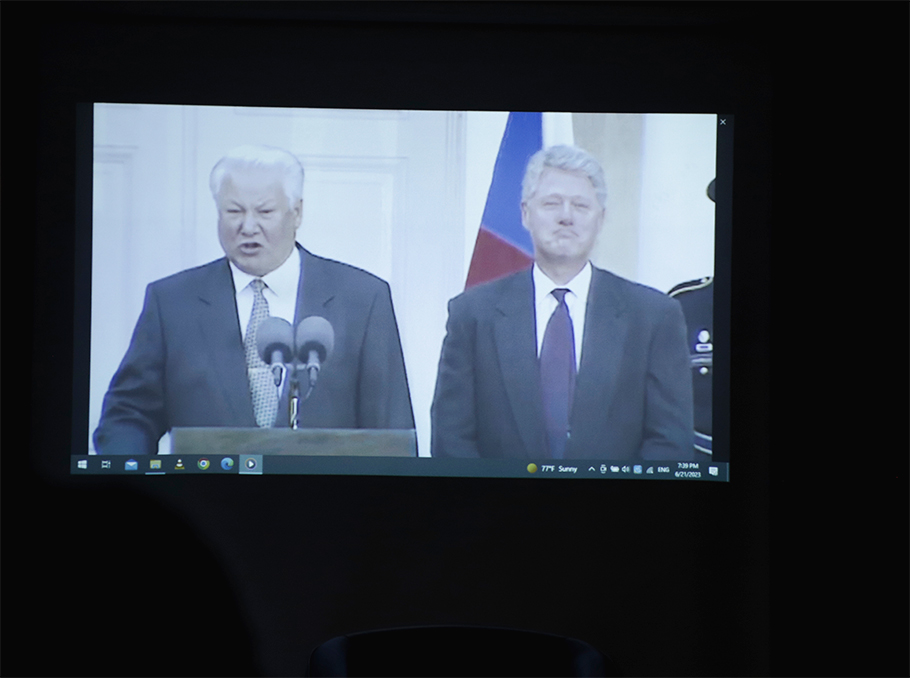
Photo: Mediamax
It is still too early to assess whether they succeeded or not. Thirty years is a short period in such matters. I think people saw then what the prospect of NATO expansion could lead to, and today we still see what that ideology has led to.
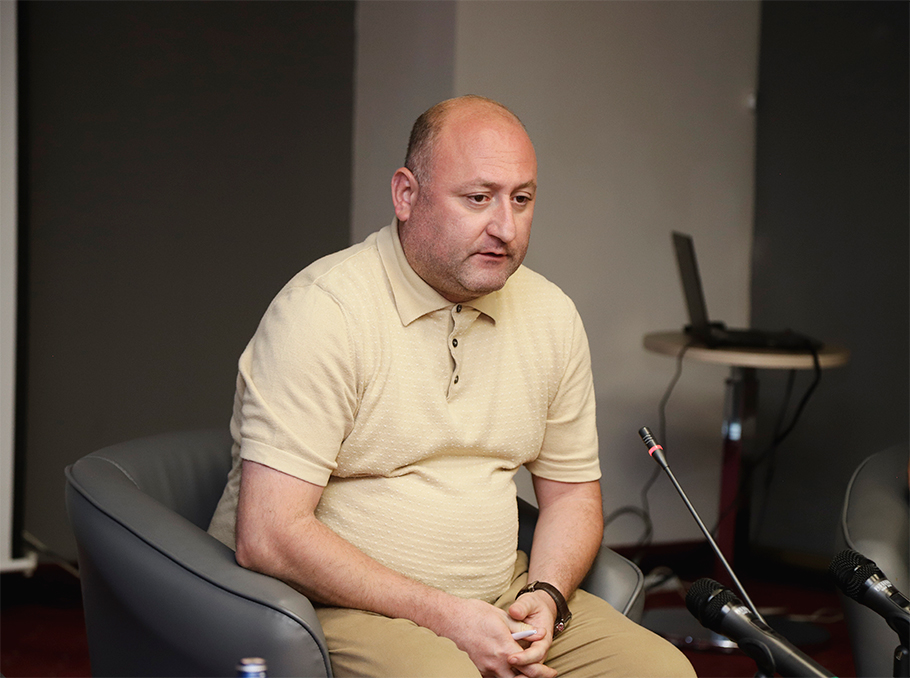 Suren Sargsyan
Suren SargsyanPhoto: Mediamax
There is an opinion in academic circles that all the events taking place around Ukraine today are solely a consequence of this.
Samvel Farmanyan - As a historian, I will quote the opinion of one of the prime ministers of China: it is too early to express an opinion on such momentous and significant decisions regarding the change of the world order. We are talking about decisions that continue to dictate geopolitical developments and generate a new architecture.
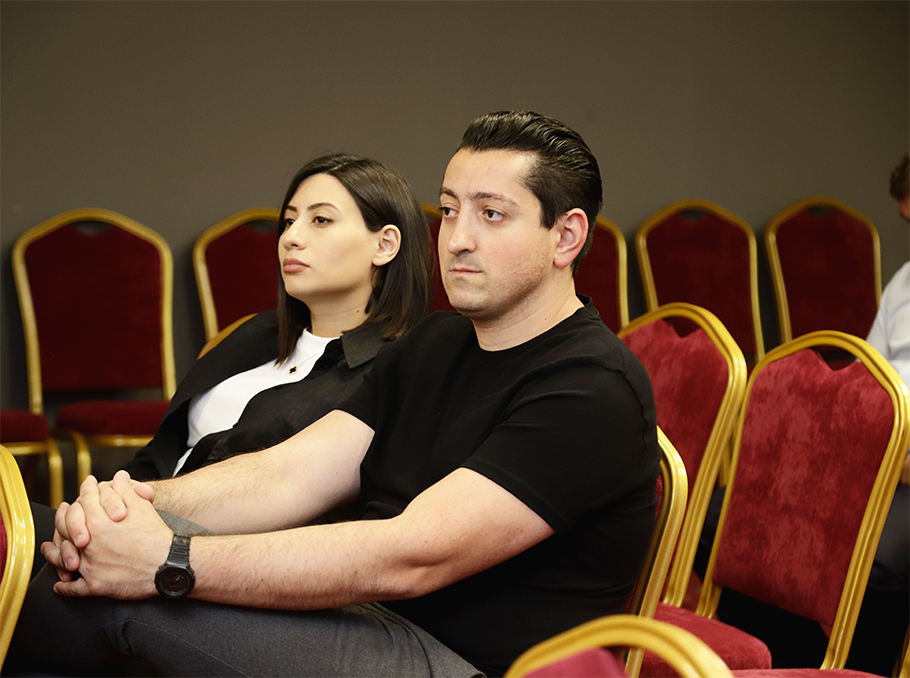
Photo: Mediamax
In general, the expansion of that phase of the North Atlantic Alliance was an inevitable consequence of another historically significant event - the collapse of the Soviet Union.
Ara Tadevosyan - Since independence, Armenia has had to try to maintain a balance in its relations with Russia and the West. I think all intelligent people, looking at the map, will understand that Armenia had no alternative. Today, after the 2020 war, after our defeat, and in the light of the events taking place in Ukraine, can the policy of maintaining balance continue, or will Armenia at some point have to make a choice in favor of this or that power center?
Suren Sargsyan - History shows that Armenia gets ample opportunities when relations between the West and Russia are warm. For example, after the events of September 11, 2001, when the world changed in just a few hours, the President of the Russian Federation was the first to phone the President of the United States to express his condolences. In this period, the two states worked together very well, including in the military, anti-terrorist direction. This was also an opportunity for us. If we look at Armenia-US bilateral relations, military partnership, it was during this very period when they were quite intensive, because there was no jealousy either in Moscow or in Washington.
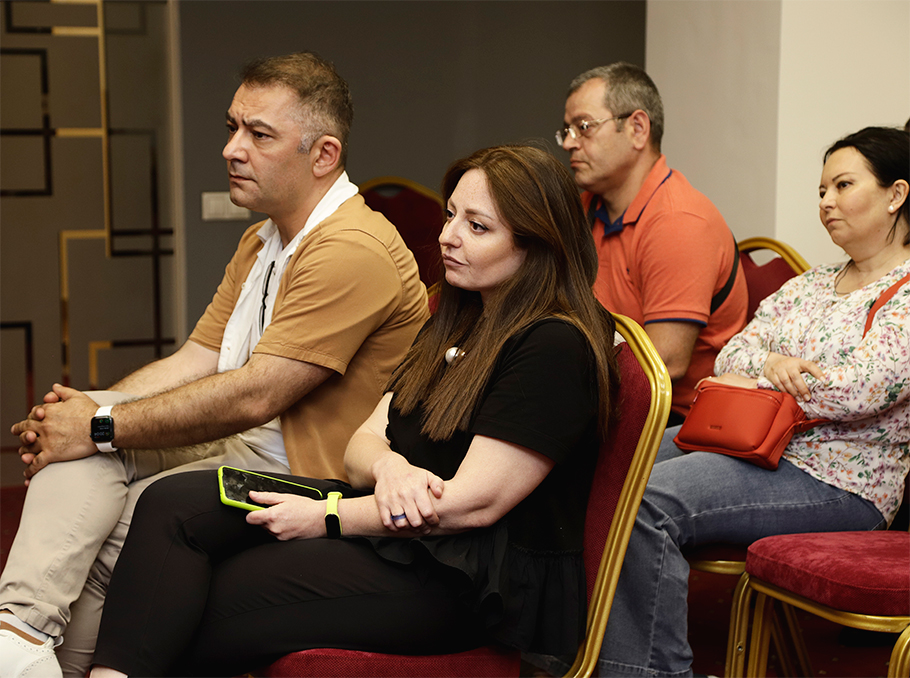
Photo: Mediamax
And on the contrary, when the relations between the two systems were tense, Armenia had to work on counterbalances or intersecting interests, somehow avoiding making a choice. In this regard, Armenia is truly exceptional, since it is a member of the CSTO and has a rather active framework of cooperation with NATO. Here it is important for the leadership of the state to assess the situation correctly.
Samvel Farmanyan - The problem of geopolitical orientation has accompanied the Armenian people from the earliest period of statehood. People may think that the dilemma of leaning towards this or that power center is characteristic only of modern history, but it is absolutely not. And it was not our choice, but the compulsion of geography. The geopolitical realities, the power centers, the tools used, the nature of international relations have changed and are changing, but the geography remains the same.
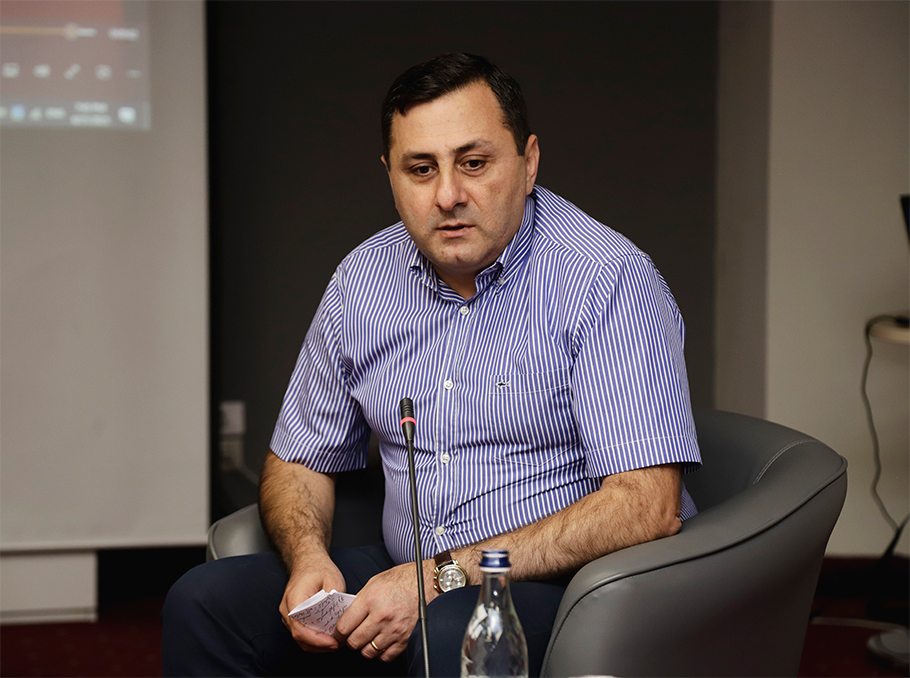 Samvel Farmanyan
Samvel FarmanyanPhoto: Mediamax
By the will of historical fate, the South Caucasus and the Greater Middle East continue to be an arena of conflict of interests of different power centers and clarification of relations. So, if Armenia is not forced to make a choice, it is not in our interests to make it. There are no examples in history when appearing in the center of the clash between major power centers, actors with less geopolitical influence make such a choice and find themselves in a more favorable position.
Yana Shakhramanyan
Photos by Agape Grigoryan









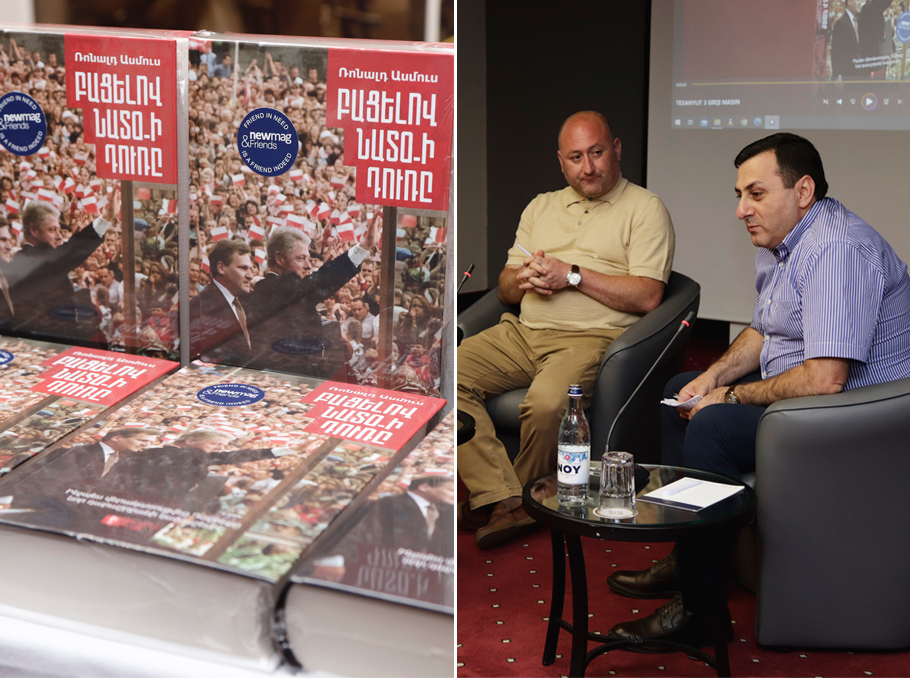
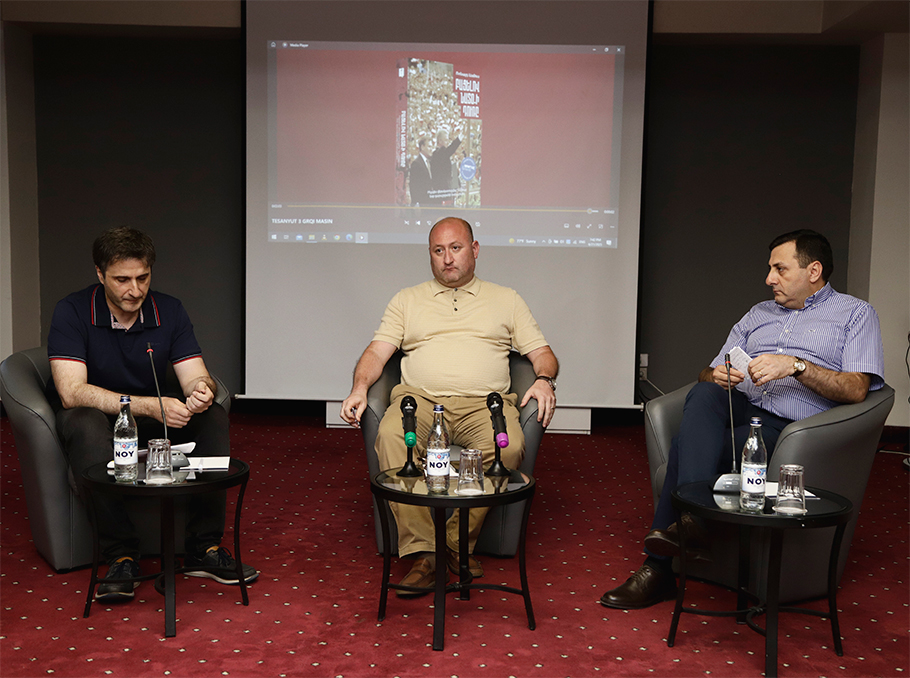






Comments
Dear visitors, You can place your opinion on the material using your Facebook account. Please, be polite and follow our simple rules: you are not allowed to make off - topic comments, place advertisements, use abusive and filthy language. The editorial staff reserves the right to moderate and delete comments in case of breach of the rules.